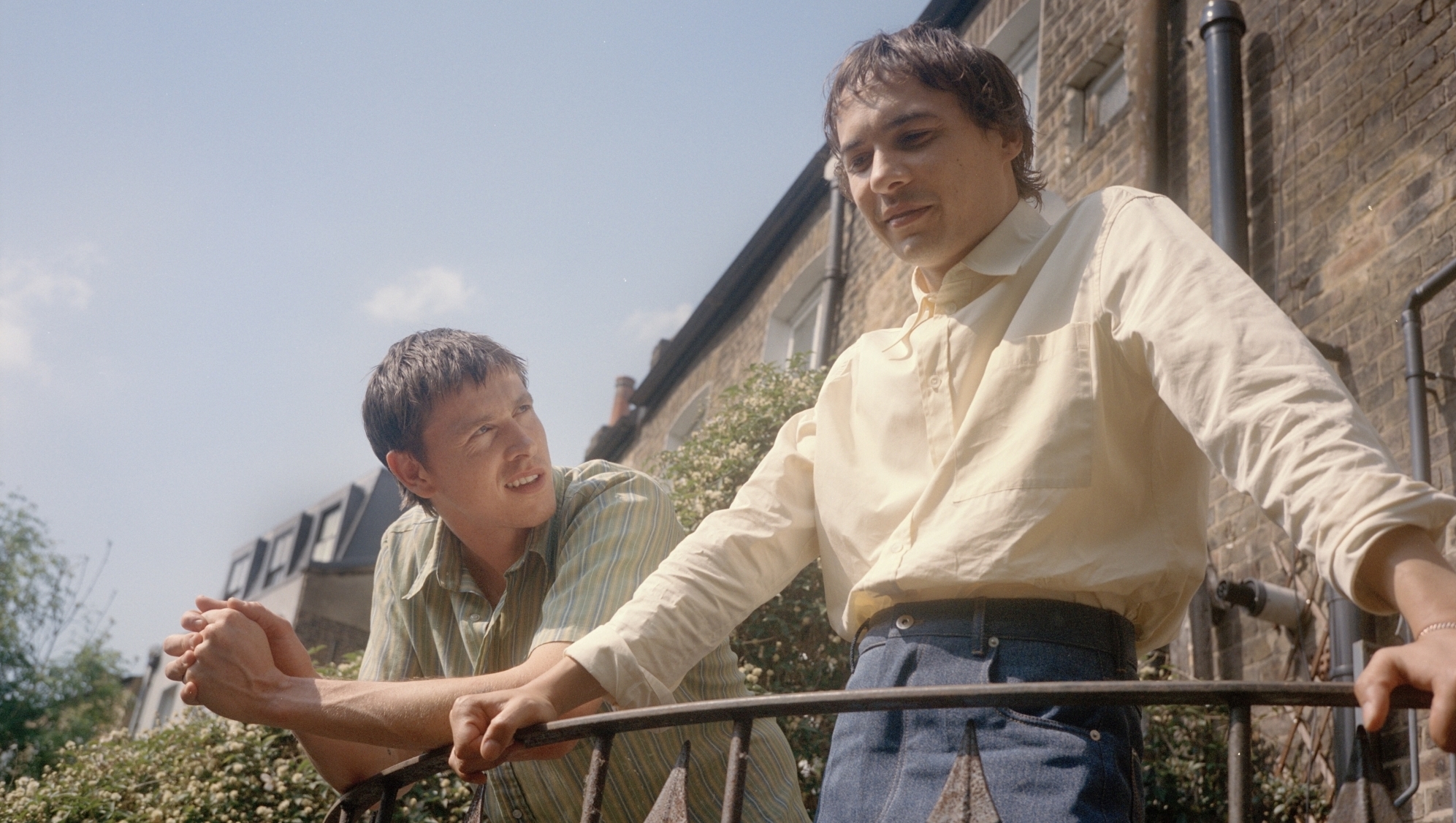
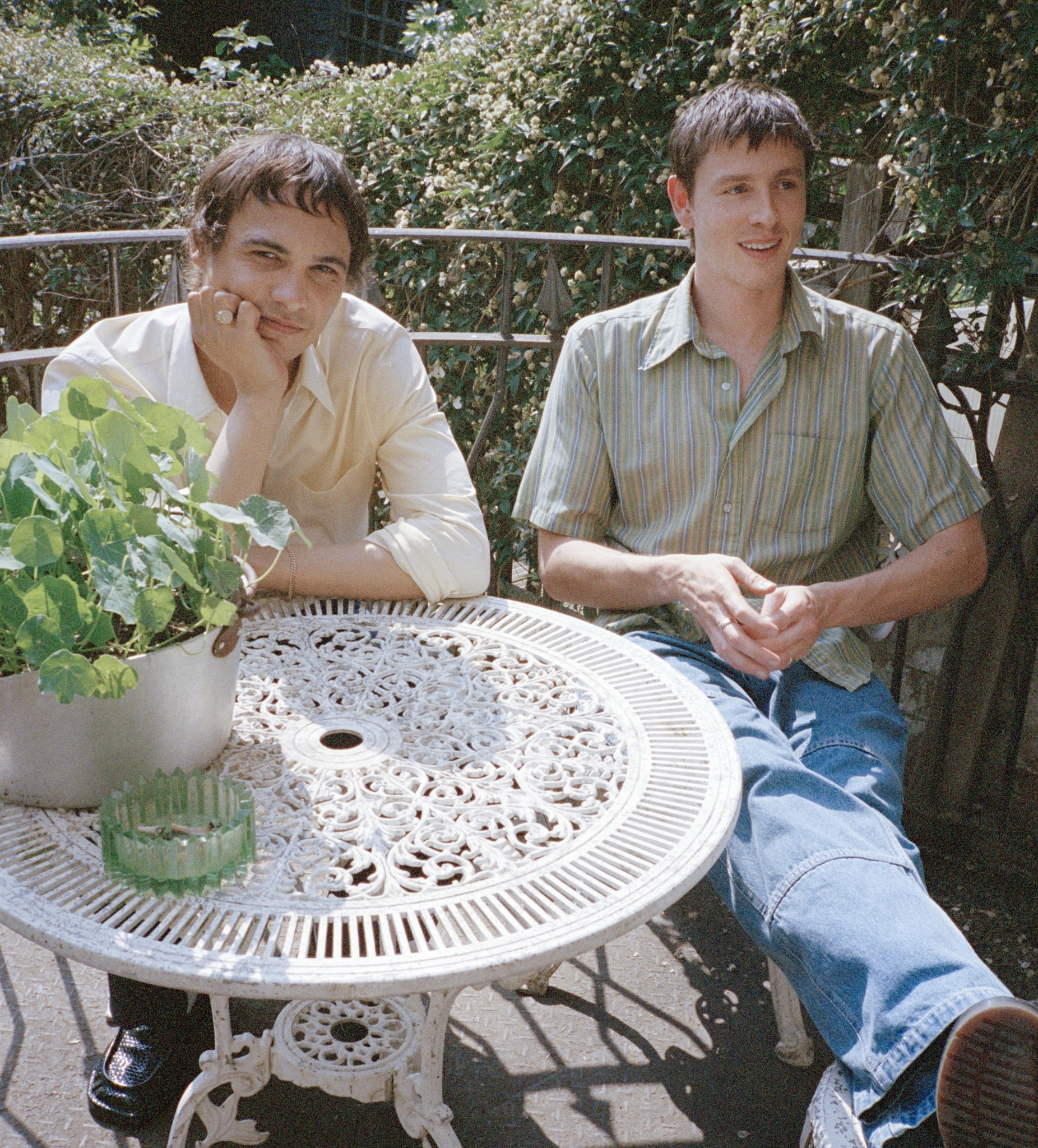
Harris Dickinson’s directorial debut Urchin marks a kind of homecoming for the British actor. Set in East London, it tells the story of a homeless man’s struggle to survive, a story of precarity and drift that nonetheless brims with hope, humour and style.
A week after I interviewed Harris Dickinson, I got an amazing tip-off from a girl in a bar. I told her about Dickinson’s anticipated feature film Urchin, which tells the story of Mike (Frank Dillane), a young man living on the streets of London. The girl, with bright eyes, responded that not too long ago she had been riding the 38 bus to Clapton Pond and had spotted the actor, discreet and dutiful, handing out food to the homeless community next to Dalston Junction station.
His directorial debut, Urchin is a film that is close to Dickinson’s heart—geographically, spiritually, creatively. Dickinson, who has built his acting career largely by playing Americans—Coney Island kid in Beach Rats (2017), professional wrestler in The Iron Claw (2023), tech intern in Babygirl (2024)—was born in east London and Urchin is filmed in its environs, from the streets of Dalston and the wasteland beneath the Dartford Crossing to City View Lodge, an almost-Lynchian hotel where Mike finds a job after his stint in prison. Dickinson worked at the hotel himself when he was first auditioning for roles and trying to make it as an actor. “I’ve done a lot of those different jobs, and I wanted to anchor it in things that I knew,” says Dickinson, speaking from the garden of a house in Hackney, where we are shooting him with Dillane. It was the pair’s first interview and shoot to promote the film, and took place on a hot afternoon a few weeks before the 2025 Cannes Film Festival, where it premièred to much acclaim. The jury of Un Certain Regard, in which Urchin competed, awarded its lead actor the best actor prize.
Urchin’s autobiographical colour does not distract from the main story. A man’s daily struggle to keep afloat, stay sober, find intimacy, make a life that is bearable. Those who have seen Babygirl may remember seeing the Kes tattoo on Dickinson’s arm, after Ken Loach’s 1969 masterpiece of social realism. Urchin is similarly inked in the traps of poverty, the vicious cycle of precariousness where housing knocks onto employment knocks onto mental and physical health. Urchin, however, dodges any kitchen-sink categorisation, with regular comic relief (the man who comes down to the hotel lobby in the nude, the probation officer who wheels herself around her office in a wheely chair), Safdie-esque heist scenes, moments of magical realism and dandy-esque styling (charity-shop snakeskin loafers and lime shirts, styled by Cobbie Yates). “We have to allow space for humour and levity, because these stories deserve that as well,” says Dickinson. A karaoke and drag racing montage set to Atomic Kitten is a particularly resounding moment of hope, where you might say Mike, however briefly, feels whole again.

Harris Dickinson and Frank Dillane. Photo by Fatima Khan.
Urchin’s autobiographical colour does not distract from the main story. A man’s daily struggle to keep afloat, stay sober, find intimacy, make a life that is bearable. Those who have seen Babygirl may remember seeing the Kes tattoo on Dickinson’s arm, after Ken Loach’s 1969 masterpiece of social realism. Urchin is similarly inked in the traps of poverty, the vicious cycle of precariousness where housing knocks onto employment knocks onto mental and physical health. Urchin, however, dodges any kitchen-sink categorisation, with regular comic relief (the man who comes down to the hotel lobby in the nude, the probation officer who wheels herself around her office in a wheely chair), Safdie-esque heist scenes, moments of magical realism and dandy-esque styling (charity-shop snakeskin loafers and lime shirts, styled by Cobbie Yates). “We have to allow space for humour and levity, because these stories deserve that as well,” says Dickinson. A karaoke and drag racing montage set to Atomic Kitten is a particularly resounding moment of hope, where you might say Mike, however briefly, feels whole again.
A Rabbit’s Foot spoke to Dickinson about making his first film, finding the absurd in the everyday and why he wants to get behind British cinema. (Also: Read our interview with Frank Dillane here).
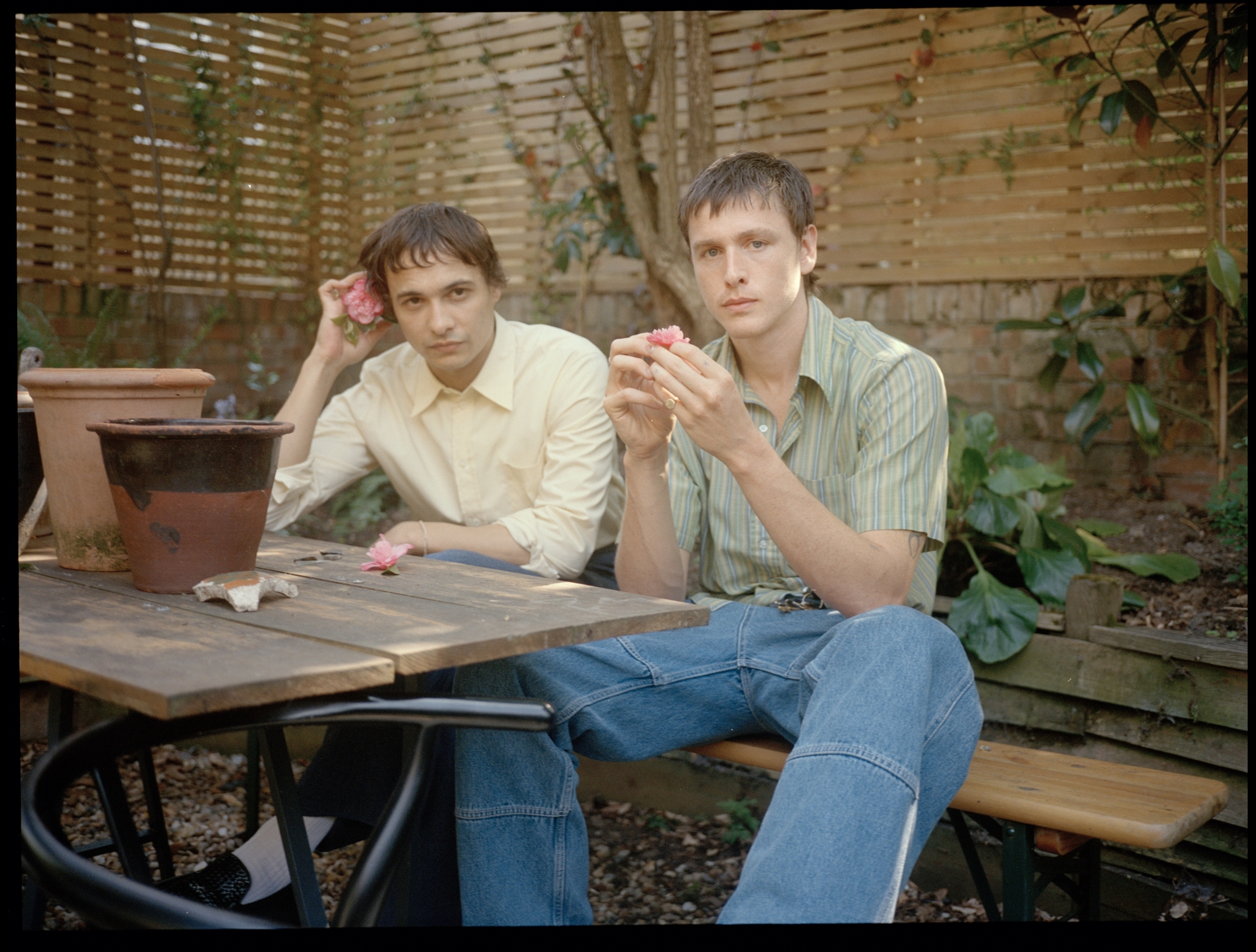
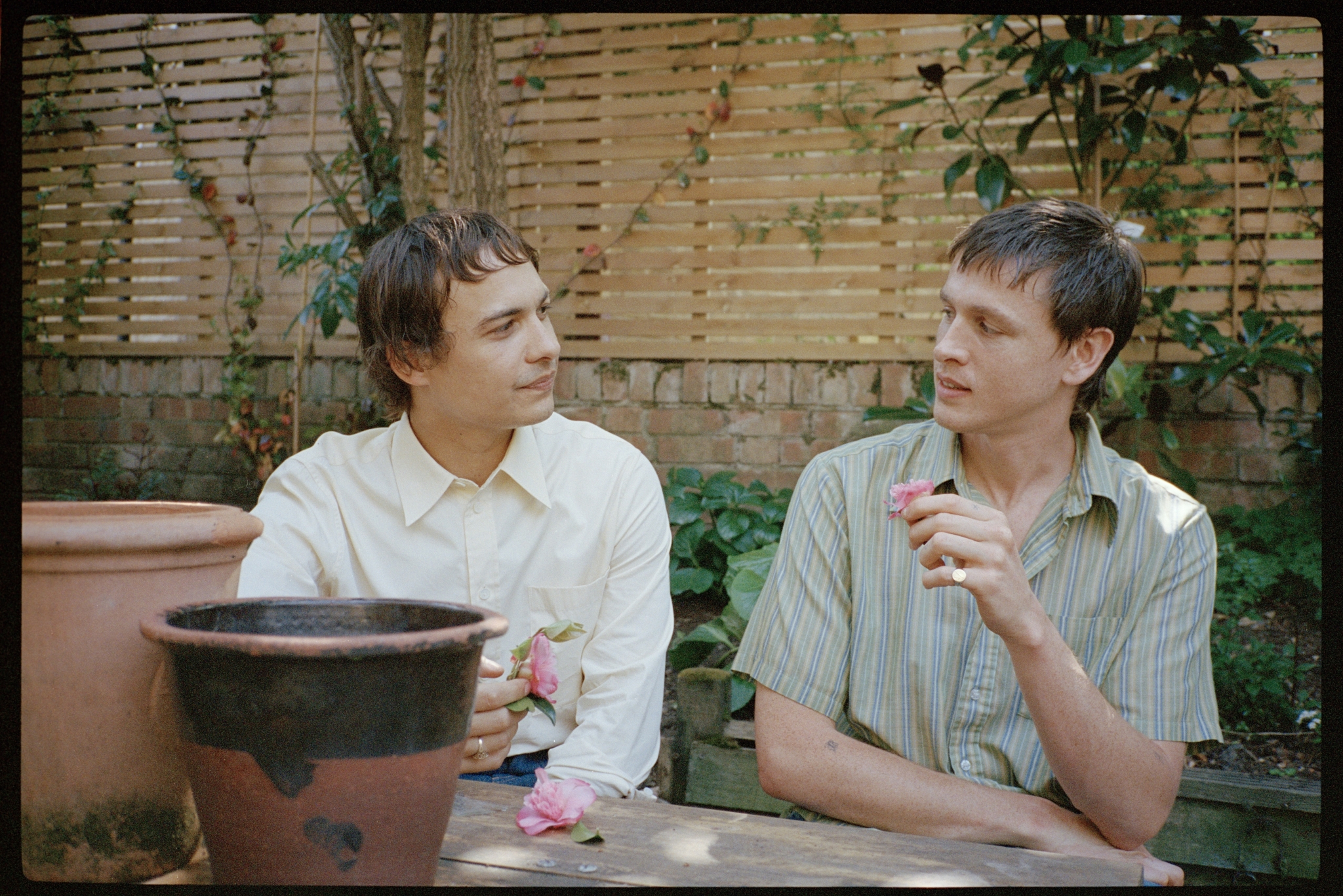
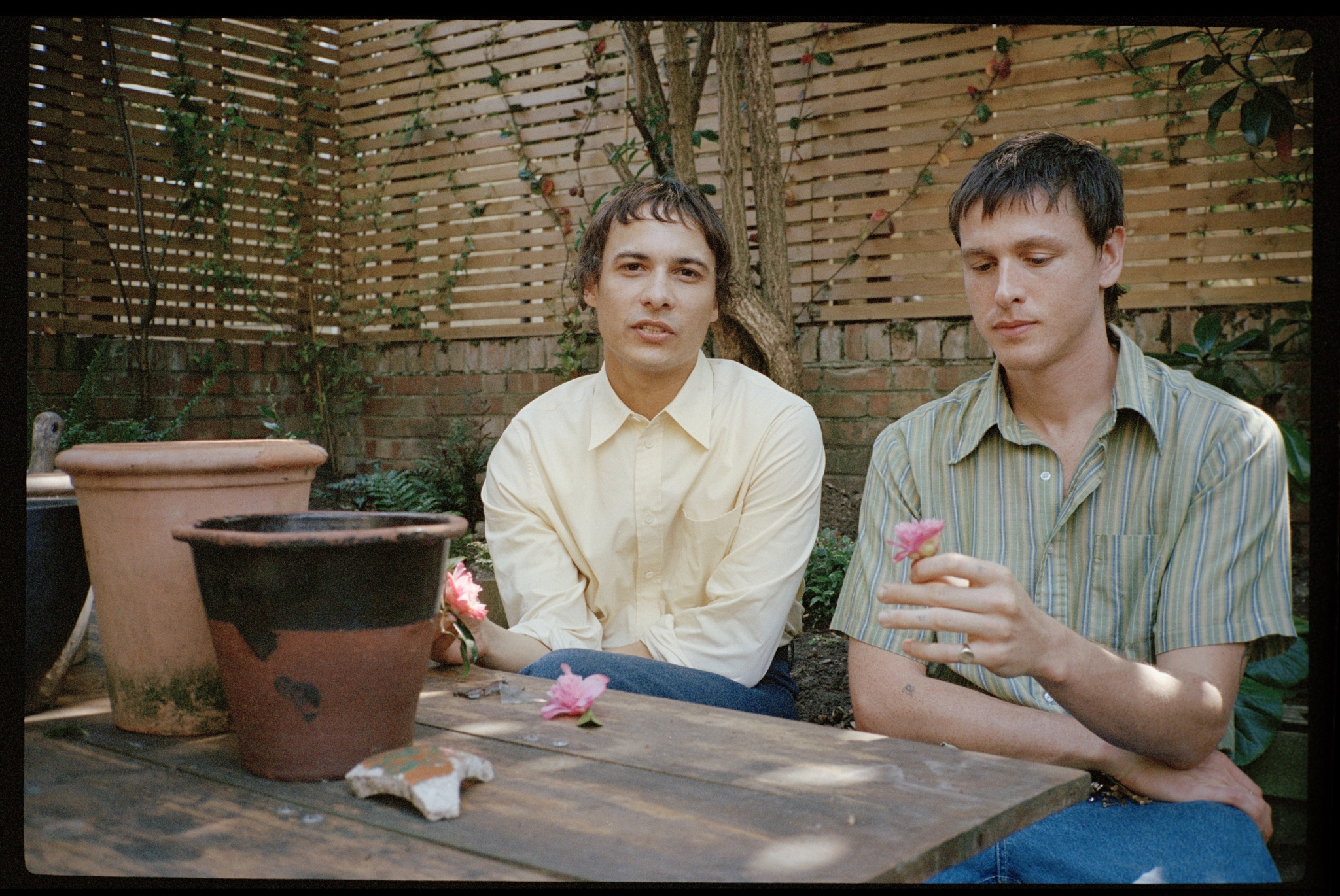
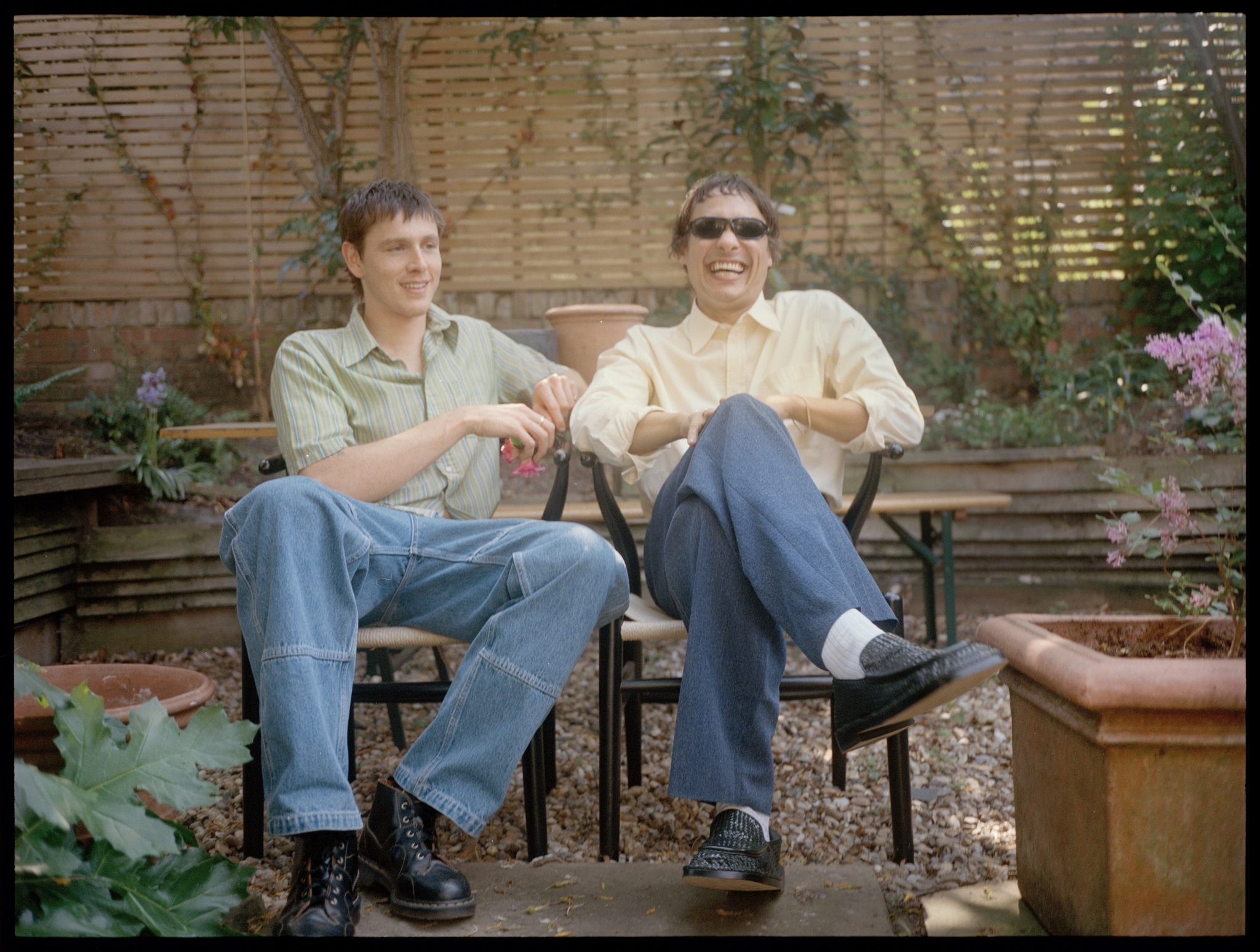
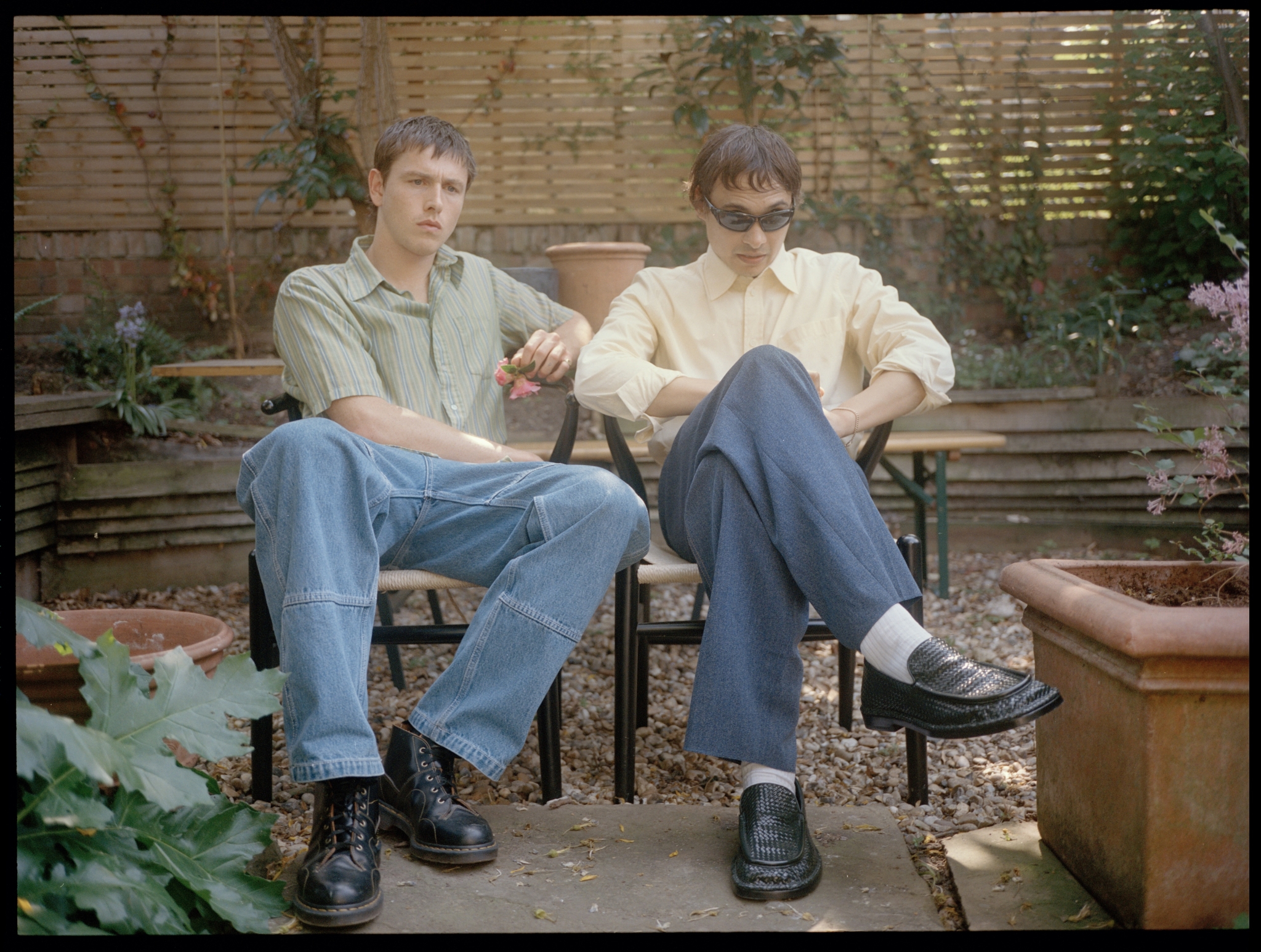
A Rabbit’s Foot
So how does it feel being on the other side of things?
Harris Dickinson
It feels good. It feels right. I mean, I’ve been making silly shorts and skate videos and sketches since I was, like, nine. I feel like directing has always been my first love, really, and acting kind of came along and overtook it, which I’m beyond grateful for, but I also couldn’t wait to do it properly like this. I’ve been waiting to make a full-length feature film forever. I’m ambivalent about what the film has turned out to be. I love it and I’m proud of it, but I also have no idea. My perspective of it was lost months and months ago. I’m too close to it.
A Rabbit’s Foot
Is there a kind of itch that’s scratched in directing that you don’t get from acting?
Harris Dickinson
Well, I’d say it’s the start of an itch that I’m scratching, because now I just want to do it again and again because you feel all the mistakes that you make, you just want to do it again and again. The difference is the sense of overall, not just control, but involvement and autonomy over ideas. Acting is wonderfully collaborative with the right directors, but you also leave your work with other people to handle. Once you’ve done your bit, you walk away and let them piece it together. This was so heavily involved, which I loved and it challenged me in all the ways I hoped for. It gave me a newfound respect for film-making because it takes so much time and commitment, and you can’t walk away from it at any point. You can’t hide behind anything.
A Rabbit’s Foot
You also play a small role in the film, as Nathan, so you doubly have nowhere to hide.
Harris Dickinson
I didn’t mean to do that, though. We had an actor drop out of the role and then I stepped in. I don’t know why, really. I’d been reading the role with Frank already, rehearsing those lines with him and bouncing off him. I thought, well, actually there’s a dynamic between us already, and his character is the only person I really have to interact with, so there’s already that rapport.
A Rabbit’s Foot
His character is a weird alter-ego almost, for Frank—a kind of devil on his shoulder—and it’s interesting that you as the director are playing that role.
Harris Dickinson
Yeah, he acts as a catalyst for him and also a symbol of change, because when we meet Nathan again he’s entirely better, and before he was like the lowest common denominator in his environment. Mike’s like, “Oh, you’re doing better than me, so I’m really at rock bottom”.
A Rabbit’s Foot
I heard that you worked in the same hotel that Mike works in, and that you’d done litter-picking jobs like him. Is this an autobiographical film in some ways?
Harris Dickinson
No, but I think I anchored it in that. The film takes part in sections almost, right? So when he gets fired from the hotel, he moves onto the next job. And I’ve done a lot of those different jobs, and I wanted to anchor it in things that I knew. When I applied for that job at that hotel, I copied someone’s CV and they hired me anyway. It was also someone who also worked at the hotel–they’d take anyone. They were really kind to me because they let me take time off for auditions. When I decided to write it, I thought, well, it’s something that I know. It was no longer a hotel, it was temporary accommodation. They kindly let us redecorate it. And same with the litter picking—that exact park in London Bridge was where I used to work. Those bins were in my safe hands. They were my bins! It was a good anchor. Mike is far away from me, of course.
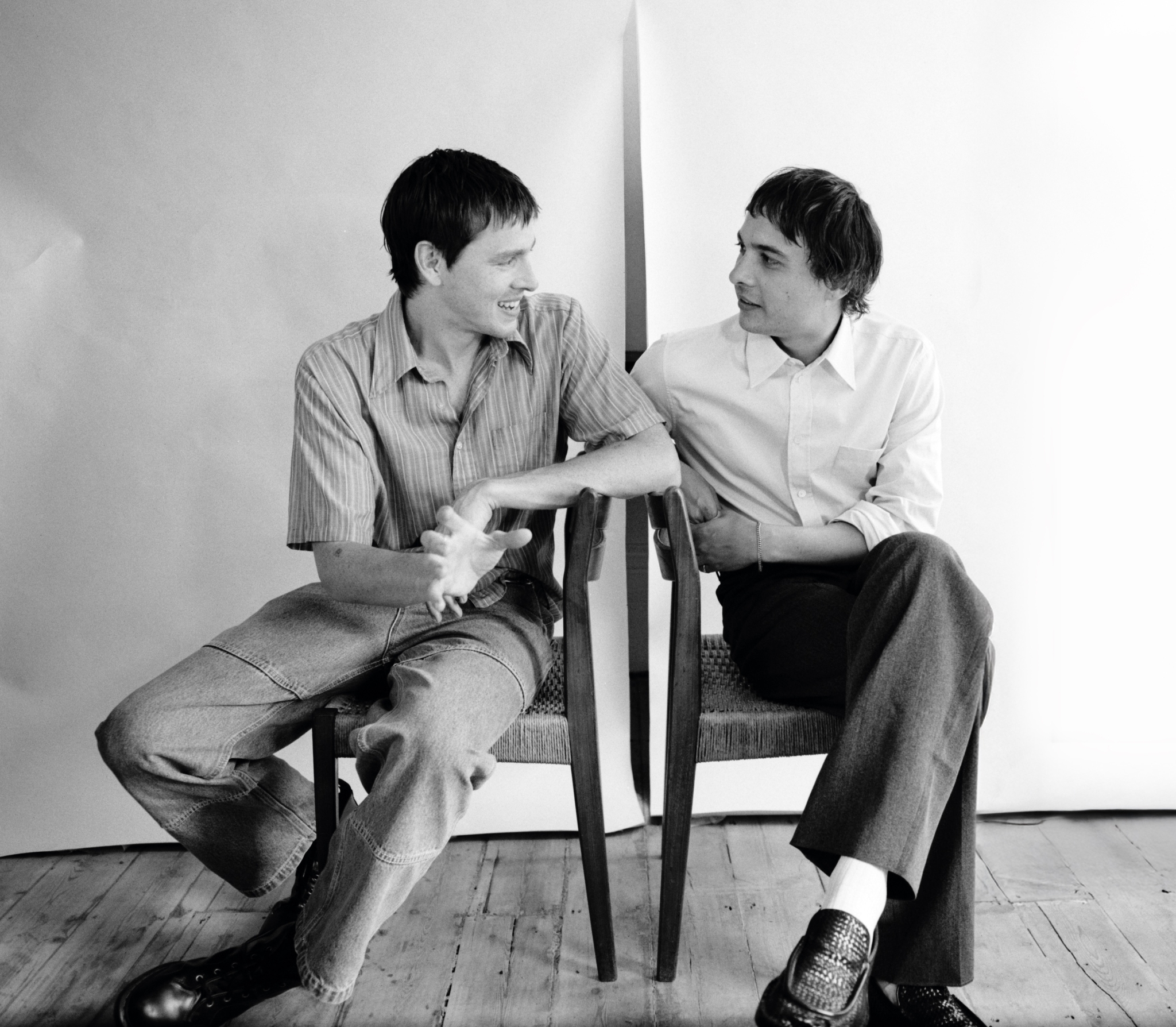
“We had to allow space for humour and levity, because these stories deserve that as well. Like this doesn’t just have to be a tragedy or drama. We can allow space for a fuller, more humane depiction of this journey, and invite humour in because it was also a display of someone who is living fast, and trying to enjoy themself—even if that is to their detriment as well.”
Harris Dickinson
A Rabbit’s Foot
And where did that desire to tell this story—which is obviously very socially and politically driven—come from?
Harris Dickinson
I really wanted to tell a story—a character study—of someone who was struggling, ultimately, against themselves and against that very common cyclical behaviour that humans are capable of falling back into really easily, despite their best efforts or despite support. It’s the story of how someone so vulnerable can so easily fall between the cracks. The film starts off in the world of homelessness—it travels beyond that, but my involvement in that community goes back five or six years. I was working at an outreach project in Walthamstow that I still work with, called Under One Sky, which is an amazing charity. It’s a volunteer-led grassroots organisation that goes out all over London, and they do welfare checks and provide hot food and drinks and different services. We relied on advisors and invited people to scrutinise [the film] and that was key. But then certain things we let go, because this is cinema, right? So there are certain things you have a responsibility to tell correctly, and then there are other things that we don’t have to, like what’s the colour of a probation room. We’re not documentary. But the things that counted and mattered, we really investigated and brought on the right people to inform us.
A Rabbit’s Foot
The turning point of the film is this moment when Mike basically assaults a man [Simon] who is trying to help him. I found that a very complex, poignant, but also uncomfortable dynamic. What were you trying to say with that?
Harris Dickinson
I think that character represents us all. It’s the inevitable hypocrisy that’s in us all, right? Even myself. I was out with the organisation years ago on the streets and someone said to a guy who was sleeping on the streets, who said he was reading Game of Thrones, he said, “Jamal, do you prefer the book or the TV series?” And the guy was like, “I don’t have a television.” So a quick remark that was intended as conversation and politeness ended up being really disconnected and insensitive. Clearly he doesn’t have a television, he’s sleeping on the streets. We are all capable of blunders like that. Simon is someone who wants to help, in the way that he deems effective. But in that moment, with those two characters, one of them is thinking about how he is trying to survive the night, the other one’s thinking about these big ideas about politics. Their levels of experiencing the world are so different.
A Rabbit’s Foot
Masculinity is such a big topic at the moment and I couldn’t help but think about it while watching this, with this male character who can’t really confront his emotions. That scene when he can’t even look the man he assaulted in the eye says a lot about masculine communication. Were you thinking about that, too?
Harris Dickinson
I think it’s separate from gender. It is also just a study of someone who is disconnected from their emotions properly. And it’s what we do—particularly when we’ve been through traumatic things or we’re coping or we’re surviving—we build up all of these barriers around areas of our brain or we create stories and protections. And that’s why we see such potentially harmful outcomes when we aren’t able to discuss it, or unpack it, or understand ourselves. And that’s kind of what the film deals with: Mike not fully understanding the extent of what he did to this man. And when that finally confronts him, it’s like, “Oh God, I now have to sit and look at myself and realise what I did and contest with that.”
A Rabbit’s Foot
You keep that period when Mike is in prison as a kind of void in the film. Did you think about how he would experience that system?
Harris Dickinson
Yeah, we spoke about that a lot. Originally in the script there was this whole prison section, but eventually, I didn’t think we needed to see that. I think we’ve seen enough of that in cinema, in British cinema. I didn’t feel too interested to spend a lot of time there. Because then it becomes about the institution, rather than the individual.
A Rabbit’s Foot
I was quite surprised as a viewer—although maybe I shouldn’t have been—at how joyful and funny the film felt. I loved the costumes and music. Can you talk about those elements in bringing the Urchin world to life?
Harris Dickinson
The main thing when we started this film—and I kept saying it to Frank and the crew—is that we had to allow space for humour and levity, because these stories deserve that as well. Like, this doesn’t just have to be a tragedy or drama. We can allow space for a fuller, more humane depiction of this journey and invite humour in because it was also a display of someone who is living fast and trying to enjoy themself, even if that is to their detriment as well—going full force at life, but ultimately that’s his pitfall as well, you know. Comedy is important. The absurd in the everyday is also what interests me as well, and I think we were also trying to make each character imperfect—the probation officer who heats up her soup mid-meeting. There’s got to be an element where we are all kind of doing it wrong.
A Rabbit’s Foot
I love how Mike’s character really oscillates and is so changeable. When you were casting Mike, was that a tricky process to find the right actor?
Harris Dickinson
It was so hard. This role on paper could have very easily been your sort of straightforward cantankerous kind of unruly guy, and Frank came in and uncovered all of these areas that were in the script, and I wasn’t sure if we were going to be able to get the nuance and the strangeness. In the first audition there was a scene where he was asking Andrea about the meaning of life—that scene in the caravan—and he was doing all these kung fu moves and I thought OK, he’s the guy for this. We needed someone to shake it up and do something entirely unique and that’s what Frank gives. He needed to be charming. We needed to love him in order to understand him, even in his worst moments where he’s immoral and unkind and all those things.
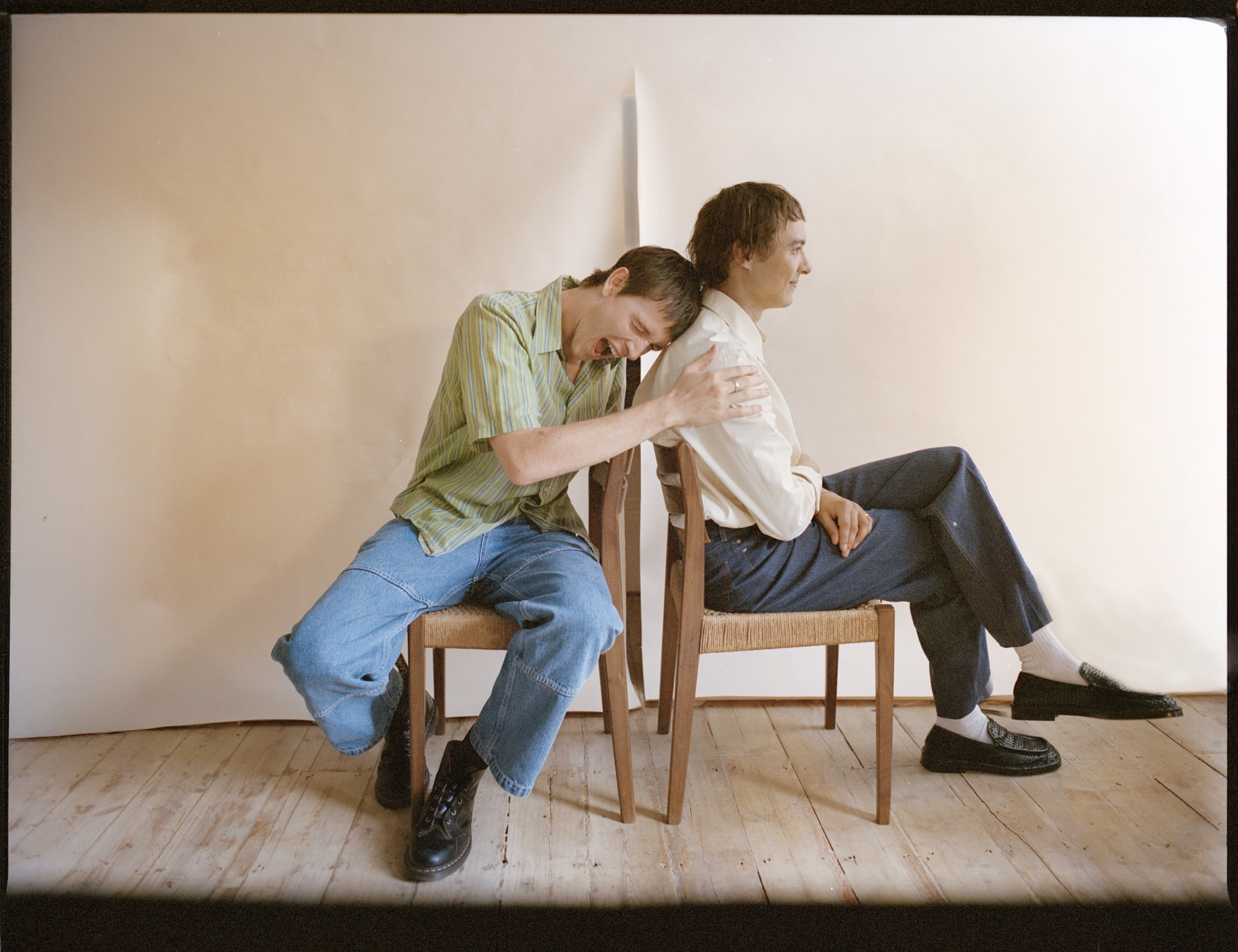
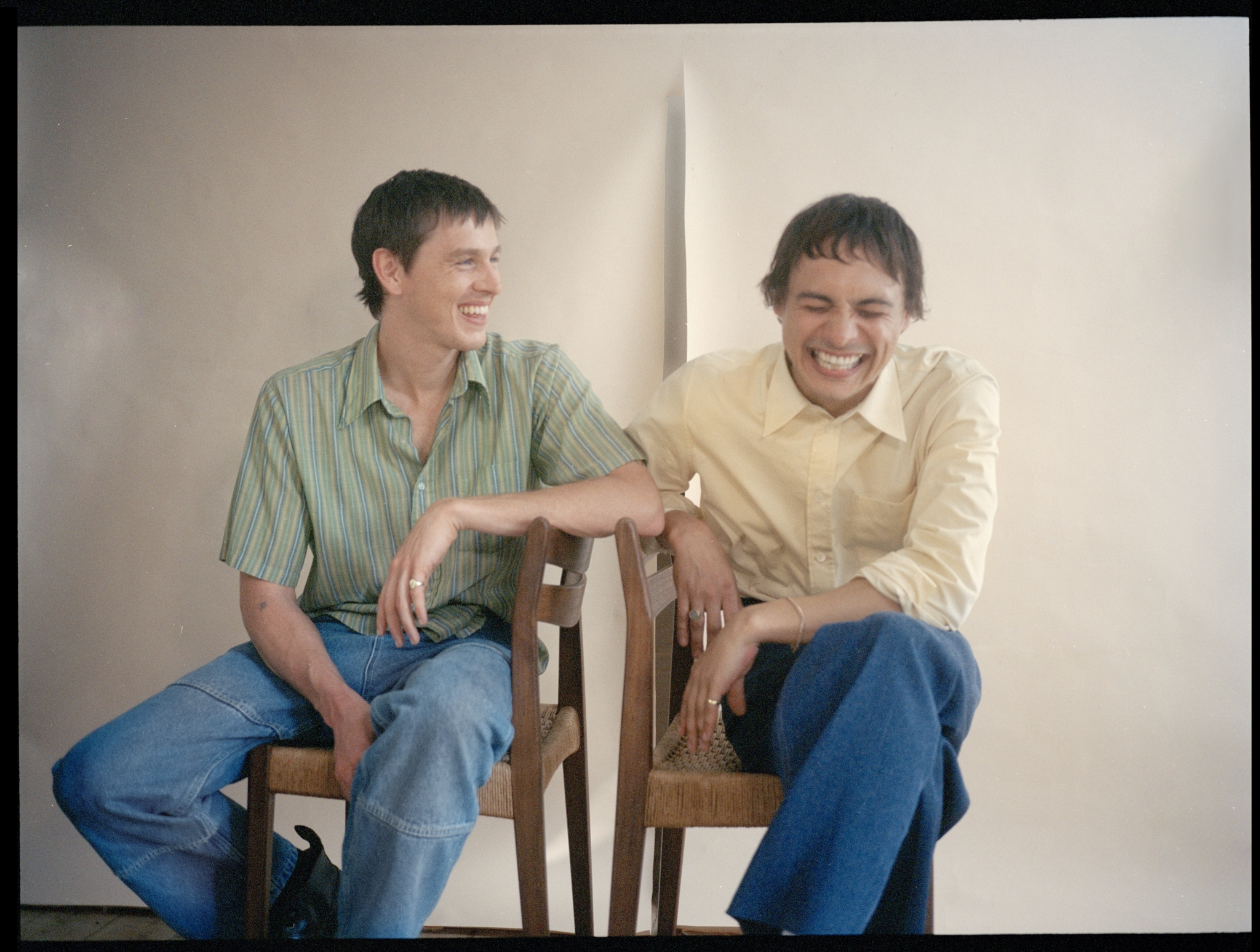
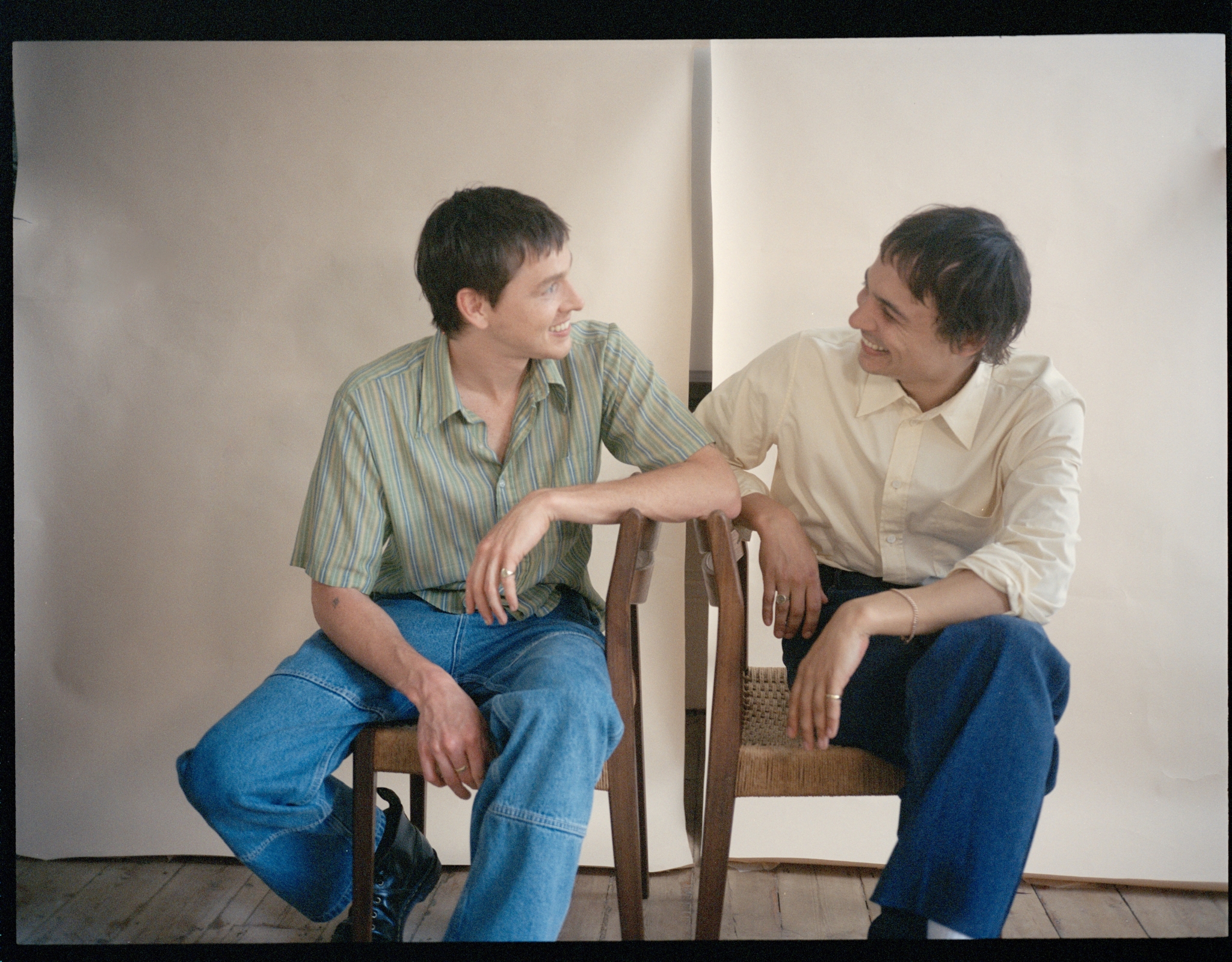
A Rabbit’s Foot
Do you think being an actor makes you a more empathetic director? You worked with Halina Reijn on Babygirl, who is also an actor-turned-director.
Harris Dickinson
I’ve done it a few times. I worked with Xavier Dolan, who was an actor as well, and Henry Blake on County Lines (2019). He was also an actor many moons ago—I shouldn’t say moons ago, he’s not that old, but it’s been a while, I think. It makes you aware of what an actor needs. The foundation of it is making sure it’s a good environment for them to thrive in. That’s all I ever ask for, to feel safe. It’s a vulnerable job, so I just want to feel safe. I want to feel like I can try stuff and make mistakes. That was valuable to me as a director, having been on sets where that was working and where it wasn’t. What are the things that throw things off balance? What are the weak links?
A Rabbit’s Foot
Now you are working a lot in America and are almost known for playing American characters, and this film, in a way, couldn’t be more different from the kind of Hollywood thing. It’s a very British film. Is this where your heart lies creatively?
Harris Dickinson
Particularly with a first film, and even with my short [2003 (2021)], I made it intentionally small, and localised, and very much contained because I didn’t want to overstretch. And the same with the feature—it felt like this is what I know, it’s where I grew up. I have a care and an interest in Britain. I love it here. I live here. I think I want to stay here and I want to get behind British cinema. That’s not me saying I’m only going to make films in England, but this one happened to be that. Of course my life is different now. I live a very different life to the life I lived five or six years ago. But I’ll always make things—if anyone lets me make another one—about what I know and what’s close to me.
A Rabbit’s Foot
Maybe it’s a cheesy question, but there’s obviously a lot of red tape in the industry. As someone from a working-class background, what advice would you give to young filmmakers?
Harris Dickinson
Oof. It sounds obvious, but perseverance and patience. It took us a long time to get this financed. We had to spend a lot of time, persisting for a number of years, to try and get the finance together, especially for a harder subject like this. Every project is different and sometimes it’s about the way you speak about it. What is your intention with it? You have to really get behind it and convince people; you have to sell your idea. We had to go to Cannes and sell this idea over and over again. Six meetings a day. And if you don’t know what your film is, no one is going to make it. You’ve got to go in and be like, “This is what it is.” Know the heart and know the message of it.
A Rabbit’s Foot
How did you sell it, do you think?
Harris Dickinson
Probably awfully [laughs]. It took us ages. But I just kept coming back to the human at the centre of it. I just kept coming back to Mike as a character for us to go on a journey with. It’s an adult tale. It’s entertainment, but it’s also a cautionary tale against what can happen if people fall between the cracks. And I kept coming back to that, despite all the other noise around it.
Creative direction and photography by Fatima Khan
Creative assistant: Kitty Spicer
Lighting: Laurence Hills
Styling: Karen Clarkson
Grooming: Sky Cripps-Jackson
Videography: Nathalie Ryan and Simao Baroseiro
Additional videography: Luke Georgiades
Special thanks to Molly Baker at Rapid Eye, London. Romilly Morgan, Lauren Southcott, Donna Mills, Emma Jackson
Frank styling: Outfit 1: Shirt, trousers and shoes by Bottega Veneta. Socks by Pantherella. Outfit 2: Leather tshirt, jeans and trainers by Bottega Veneta. Socks by Pantherella. Outfit 3: Shirt, tie, belt, trousers and shoes by Celine. Socks by Pantherella





